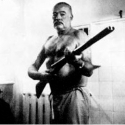|
hailthefish posted:gently caress me, I just want some nice oppression-free bells & smells. You and me both  
|
|
|
|

|
| # ? May 31, 2024 05:10 |
|
Valiantman posted:Think REALLY hard what you just said. dwi, it's interesting even if completely hosed up 
|
|
|
|
Senju Kannon posted:some of the essential themes are around textual interpretations and the bible (a la dale martin and probably other philologists and classicists), I would be pleased to hear more about interpretations of the Bible that come from LGBT theology. Recently I have been praying on the story of Cornelius and Peter from Acts 10. I feel as though Peter's vision with the blanket and subsequent realization that the Holy Spirit was being received by people who were not Jews and did not follow Jewish customs mirrors my own understanding now that the Holy Spirit is indeed alive in LGBT people and urges them to remember that Jesus Christ does not judge the living and the dead by our diets, our foreskins, or our preferences in eros, but he judges based on our actions towards the weak and vulnerable. NikkolasKing posted:I think it's a fascinating topic, but I have no idea if it's true. Does anyone here know about this? That seems like a plausible explanation. For what it's worth, though, my experience with churches has led me to believe that church attendance tells only one over-inflated story about the public spirituality. After all, the goal has always been to change hearts, not to get butts in seats. I witness on the left what looks to me like many hearts on fire for justice. They will either find or surely the grace of God will give them a means to find relevant spiritual restoration and reconciliation with one another, as Jesus envisioned his church to be.
|
|
|
|
NikkolasKing posted:I have a question for socially/politically aware Christian goons. It's important not to confuse attendance and faith. It would be great to have both, but I'm not sure the former should be treated as more important than the latter. I don't have any hard data here, but my suspicion is that people who do leave conservative/evangelical churches tend to do so much more completely than those who leave liberal churches. I suspect a former member of a conservative church who leaves is much less likely to take their children there, or come back a couple of times a year, or in any way leave the door open for future re-engagement. So it's true that conservatism might be the best way of keeping bums in pews, but it comes at the cost of your denomination becoming increasingly distant from society as a whole. quote:There was some speculation on why this might be, such as liberalizing or modernizing a church removes all the mystique. It becomes a place just like any other and thus defeats the whole point of church. Meanwhile, a church that remains firm in tradition with unwavering rules will appeal a lot more to certain folks. That position feels so vague as to meaningless. Some "modernising" movements, such as pietism in Germany or Methodism and the holiness movement in Britain, undoubtedly increased attendance in previously moribund churches. Evangelism itself is pretty modern. I missed the conversation earlier where people were talking about how to increase attendance at services, and the answer seems pretty simple to me: make services better. Where you see growing congregations, its always a matter of praxis rather than theory. I believe the boom in evangelical church attendance in the English-speaking world at the end of the last century was largely down to a focus on excellent homiletics, which left mainline Protestants in the dust. And by focusing on music and liturgy, English Cathedrals have turned their congregations from the fastest falling in the country, to the fastest growing, in a couple of decades. There's no reason why liberals can't get better preachers, or Evangelicals can't get better music, regardless of the theology of either group. Also, and I apologise if this offends thread members, but every Roman Catholic church I've been to in England has failed hard on both fronts.
|
|
|
|
Tias posted:dwi, it's interesting even if completely hosed up the tl;dr is that Reynard the fox convinces Ysengrimus the wolf to join a monastery, and when he leaves, Reynard goes to his house, pisses all over his children, Ysengrimus' wife gets mad and chases Reynard back to his den, her fat rear end gets stuck in the door, and Reynard escapes out a bolt hole but comes back to rape her.  just 12th century things later the Reformation would use these characters to slander the papacy, because the Reynard Cycle was really deeply ingrained in pop culture in Europe.
|
|
|
|
The Phlegmatist posted:the tl;dr is that Reynard the fox convinces Ysengrimus the wolf to join a monastery, and when he leaves, Reynard goes to his house, pisses all over his children, Ysengrimus' wife gets mad and chases Reynard back to his den, her fat rear end gets stuck in the door, and Reynard escapes out a bolt hole but comes back to rape her. Holy poo poo, where can I read an excerpt? 
|
|
|
|
I looked into evil monk stories again, and they're different from that. One I read today is basically: the Mongol emperor was so corrupted by his evil Lamas that he engaged in these following terrible rituals - [list of detailed descriptions of innocuous sex positions familiar to every goon]. I don't think people were getting off to the Reynard stories, though people do mange to surprise me quite often.
|
|
|
|
Oh man, I told myself I was going to lurk this thread, but my personal experience is actually relevant here. I grew up in the Congregational church, where my mom's ex-husband was a pastor. When I was young, I was a devoted congregant. I tried to do all the things that he said Jesus wanted me to do. I went to Christian summer camps, I abstained from sex and alcohol, etc. When I was in 10th grade I got pulled into an enormous fight near my school. I grew up in a pretty violent area and it was inevitable it would happen at some point. The things was, I didn't understand why it happened to me. I was pious, and I did what my pastor said I had to. When I asked him why it happened, he didn't have any answers for me. Instead he told me to study the bible and reach my own understanding with God. This was the beginning of the end for me. The more I read, the more I found there to be conflict within the book, especially between the old and new testaments. When I'd ask him about why we followed some rule in one part but not one in another, the answer was always just "that's how the Congregational church does things." I really took to the new testament. I perceived Jesus in a totally different light from what was taught in my church. Congregationalists are very much about shame, and about how Christ will be disappointed if you don't follow the norms. But in my own study I perceived a Christ who came to throw away all that, who came to replace all this morass of conflicting moral code with the law of being good to your fellow human. I tried a couple other churches in college, but they were equally conservative and equally at odds with what I felt in scripture. Then I tried a church that had a liberal youth worship service. By this time my political identity had coalesced and I was very much a socialist and social free-thinker and saw Jesus that way too. So I gave this church a try, and what I found was that they were preaching maybe a slightly more liberal version of Jesus, but ultimately there was still a lot of rigid social code to follow communicating through acoustic guitars and pastors in t-shirts. My cynicism in the concept of church was perfected in that church and I left it. I continued to study Christianity and whatever other religions I could on my own, but I began to see myself as an atheist trying to assemble pieces of religion that fit into my life, and that's where I sit today. I look up to Jesus as an important example of a human being to aspire to, but I no longer have any belief in the spiritual aspects of Christianity. Instead I find my fulfillment in trying to find grace in my life and share it with others, in standing up for those that society shuns, and in attempting to live a life that can help those around me. And actually now that I'm posting this I think I've just talked myself into a "spiritual but not religious" label, because I definitely do have an intuition that leading your life in a Christlike way leads to fulfillment and happiness, but I don't necessarily see anything supernatural in that. So, at least for me, it seems that even liberal churches' message tends to ring hollow to an extent for liberal Christians and this could be driving that falling off of membership. Sorry if this post wasn't academic or I'm using any kind of terms wrong or anything. I know there's a lot of actual theologians here and most of what I know of academic religion comes from reading the Bible itself and from studying church philosophers during my philosophy degree. Kierkegaard is my favorite because I just want to give the poor guy a hug.
|
|
|
|
NikkolasKing posted:I have a question for socially/politically aware Christian goons. Part of the problem is that liberal churches also tend to subscribe to theologies and preaching styles that make very few demands of their congregations. There are lots of warm fuzzies and very little moral indictment, which contributes to the indifference that others have talked about : if you just go to church to feel nice, there are plenty of other ways to do that. If, however, you're going to church in order to be reminded of the ways you've failed to do right and to help form yourself into a person who will do better, then you're going for something that's a little harder to get elsewhere. I've long been of the opinion that more left-leaning churches could do with a bit more fire and brimstone. God wants us to help the poor out of love, but He was also pretty clear that failure to do so means that you're going to hell.
|
|
|
|
Tias posted:Holy poo poo, where can I read an excerpt? You'll pretty much have to buy the English translation (with really good commentary) that Jill Mann did in 1987. It's not available in its entirety on the internet, and the Latin involved in the original is really difficult. There's a German translation in the public domain though if you know that. Bel_Canto posted:I've long been of the opinion that more left-leaning churches could do with a bit more fire and brimstone. God wants us to help the poor out of love, but He was also pretty clear that failure to do so means that you're going to hell. Yep. It's the whole Matthew 25 thing again. Jesus literally says that those who do not give to the poor are destined for hell. You can't even mince words with that chapter. It's clear. So the mainstream Protestant malaise of "well we're actually kinda universalists, do whatever you want" works against them in this case. I'm a universalist as well but you don't need to preach it from the pulpit; that doesn't call people to action, it calls them to inaction.
|
|
|
|
https://twitter.com/spnbmb/status/839961569819623424
|
|
|
|
NikkolasKing posted:I have a question for socially/politically aware Christian goons. There's also a possibility that foaming-at-the-mouth reaction is in shorter supply and that some churches are pretty good at supplying it. Calm and welcoming acceptance, while good, is not as fun as getting super angry about something, and it's hard to get real het up about HARDCORE UNIVERSAL ACCEPTANCE. This is kind of a problem outside of church as well. People just don't stick with quietly good things. I think if you want to reverse that trend you need either better humans, or to accept that you're going to turn some people away if you adopt a, well, crusade that you think is more ethical. It's hard to keep a popular middle ground in an age of radicalism. OwlFancier fucked around with this message at 18:55 on Mar 10, 2017 |
|
|
|
The Church of Denmark would probably be considered a pretty prime example of a liberal church in this discussion, I feel, but even as someone who is fond of this church, I have a hard time viewing a decline in membership in recent years as necessarily being a problem. I would think that all religious or spiritual communities which are majority communities that people will to some extent default into, will be challenged simply by globalization and an increased level of education. What I mean is, people have a growing level of autonomy, an actual, still-growing possibility of choice when it comes to picking which religious or spiritual community they belong to, due to an increased awarenss of alternative communities and more opperunity of joining these communities locally. Although memberships may be dwindling overall, I think you could fairly argue that it is still possible for more people than ever to be part of their church through choice, rather than social pressure to conform. I find myself having a knee-jerk reaction to the sentiment that a relatively liberal church would be about "warm fuzzies" rather than challenging it's congregation. As if a church that encompass the possibility of same-sex marriages isn't challenging part of it's congregation? I mean, the possibility of spiritual complacency is an ever-present pitfall for anyone, I think, and without self-reflection were are inclined to seek the path of least resistance, and the path of least resistance can just as well be a conservative or orthodox environment for some people, as it can be a liberal space for others. cis autodrag posted:Sorry if this post wasn't academic or I'm using any kind of terms wrong or anything. I know there's a lot of actual theologians here and most of what I know of academic religion comes from reading the Bible itself and from studying church philosophers during my philosophy degree. Kierkegaard is my favorite because I just want to give the poor guy a hug. I don't think anyone should apologize for sharing their experience, and I enjoyed reading of yours. I'm curious if you would talk a little more about what you like about Kierkegaard, and if you would suggest any particular entryway into his authorship. The reason I ask, is that, despite being Danish and Christian, and finding Kierkegaard to be a sympathetic person from what little I know of him, I have never managed to breach and enjoy his authorship. I don't think that I am adverse to reading relatively heavy or slow-moving literature, but the few times I've attempted Kierkegaard, his prose feels so long-winded and emotionally distant to me. It has been years since I last made an attempt, and Kierkegaard has entered my to-read list again, so I will make another attempt sooner or later, but a personal recommendation is always a great motivator when giving any literature a chance, I feel.
|
|
|
|
I see your "sanctuary, portable, Orthodox" and raise you "priest celebrating Mass on the hood of a jeep"! The priest is Fr. Kapaun, whose cause is in progress.
|
|
|
|
I've read some Kierkegaard. The title appealed to me (the sickness unto death?) and I was sort of nodding along until, in a footnote some chapters in, he wrote something like "btw women don't have souls". Oh well, I said to myself, guess I don't have to keep reading this, and went back to doing something else.
|
|
|
|
cis autodrag posted:Oh man, I told myself I was going to lurk this thread, but my personal experience is actually relevant here. I grew up in the Congregational church, where my mom's ex-husband was a pastor. When I was young, I was a devoted congregant. I tried to do all the things that he said Jesus wanted me to do. I went to Christian summer camps, I abstained from sex and alcohol, etc. What up, fellow former Congregational church buddy! What's funny to me is that "that's how the Congregational church does things" is such a completely subjective statement. Presuming your Congregational church was a member of the UCC, the same organization that mine was a part of, then I think we're talking about the same Congregational church. See, it's a bit complicated because Congregational is a word which refers to both a style of church organization and governance, and also a denomination. I too grew up in the Congregational church, and I had an entirely different experience. Shame was for Catholics. Christian Summer camps were unheard of. Or, for fundamentalist Baptist or charismatic crazies. Morning worship was a time for reflection and worship and at the end I would be the first one out so I could ring the big bell. I can still remember how the weight of it would lift me up, feet off the ground. My dad was big into Buddhism, and the church congregants as a whole were pretty tolerant/ecumenical. Frankly, my conception of God was pretty pagan/polytheistic, as I would sometimes imagine the whole host of named Gods all meeting together to sort things out and work together for the benefit of humanity. A naive paganism. I went to Sunday school, and confirmation class, and left with a fairly shallow sense of theology and a vague sense of holiness in the world but also a sense that one can't really know with certainty all these things, you just have to try your best and forgive yourself, yada yada yada. I left because after my sister and I went to college, there just seemed like there were other things that just took a higher priority, and frankly the new minister who came in did not have the charisma of our previous pastor. So I was roughly a nondemonitational Christian. Spiritual but not religious. And then later atheist. And now, I'm technically speaking an "inquirer" at a ROCOR church. Not quite a catechumen, as they would want me to make my current relationship formal rather than the common-law marriage it essentially is atm. But I'm getting off track, I meant to mainly talk about how different two experiences can be within the Congregational church, because the whole point of Congregationalism is that the Congregation makes decisions on how the church shall be, who the pastor shall be, etc. When our pastor left, we formed a "search committee" and in the interim we had a temporary pastor. The culture of the church was quite liberal, and this was something which emerged from the community, and wasn't imposed from the top down. So to say that Congregationalists are one way or another just rubs me the wrong way I guess. Och, I'm rambling. Hopefully what I've written was useful or edifying.
|
|
|
|
That was very disorganized and rambling. Sorry if it was a chore! I'm a bit punch drunk because I just got in from moving loads of firewood from the barn to the porch and it was quite a little project.
|
|
|
|
Well I, for one, like reading the stream-of-consciousness posts quite a bit, even if I rarely reply to them. So as far as I'm concerned,  . .
|
|
|
|
Less a stream, more of a trickle.
|
|
|
|
 unto others as you would have them post unto you, but not about abortion unto others as you would have them post unto you, but not about abortion
|
|
|
|
Grandmother of Five posted:I don't think anyone should apologize for sharing their experience, and I enjoyed reading of yours. Thanks! My love of Kierkegaard mostly just comes from how dang depressing he is. Like, some people find Hobbes way more depressing because of the raw cynicism, but Kierkegaard basically feels like the nature of God is incomprehensible and the only moral response to that is to feel utter anguish. I only read a limited selection of him in my studies, obviously, but I find his writing almost perverse and it appeals to me in an odd way. I don't necessarily agree with much of it, but it's fascinating as an object of study. I love Augustine's On The Teacher for similar reasons. There's an interesting irony in being yourself a type of teacher while ultimately arguing that all knowledge is pre-emplaced in the mind by God and the teacher does perhaps no more than turn a metaphorical light switch. CountFosco posted:What up, fellow former Congregational church buddy! What's funny to me is that "that's how the Congregational church does things" is such a completely subjective statement. Presuming your Congregational church was a member of the UCC, the same organization that mine was a part of, then I think we're talking about the same Congregational church. See, it's a bit complicated because Congregational is a word which refers to both a style of church organization and governance, and also a denomination. Oh no no, we were very much not UCC. We hated those hippies for changing it from "Glory be to the Father" to "Glory be to the Creator". Basically, there used to be just The Congregational Christian Churches Association. At some point a more liberal movement broke out within the church and eventually split into the United Church of Christ (which it sounds like you grew up in). The CCCA is very traditional and one of the things they emphasize is their claimed line of descent directly from the Puritan pilgrims that landed at Plymouth Rock. When my mom's ex-husband was doing his student pastorate it was at a UCC church because there were no CCCA churches that needed slots, but he was required to have weekly meetings with his CCCA advisor to talk about what aspects of his UCC services he couldn't carry over to a CCCA church once he was assigned one. He eventually cheated on my mom with a youth minister, but it was my mom who got kicked out of the church, if that gives you an idea of the sort of culture CCCA had.
|
|
|
|
Caufman posted:I would be pleased to hear more about interpretations of the Bible that come from LGBT theology. take back the word: a queer reading of the bible is a book that has some pretty good essays in it, though obviously some are worth more than others. still it has a good overview of some of the hermeneutical principles that queer scholars use for their textual analysis, though i will admit some take these things more seriously than others. though that might just be me coming from a catholic tradition and not appreciating the less rigorous theologizing of some protestant theologians writing in the volume. i would actually highly recommend sex and the single savior, because even though i do not want to read that loving chapter on jesus' penis again it actually has good merits on its own, and the whole book is a really good take on how to read the bible. again, dale martin is probably one of the foremost queer biblical scholars and his work on hilology related to anti-gay verses in the bible is some of the best. i will say, though, i abandoned scripture pretty early on in my queer theology career. scripture, tradition, ecclesiology, a lot of stuff like that seemed like weights that would bog down someone who wanted a truly liberatory reading of christianity. is it any wonder i would stop being christian lmao. anyway i say this to explain why i don't have many recommendations for biblical studies
|
|
|
|
oh god OH GOD
|
|
|
|
anyway i wish i could effortpost to respond to all your interesting ideas, but i've been exhausted, trying to finish a presentation for a conference. possibly after march is over. 
|
|
|
|
Bel_Canto posted:Part of the problem is that liberal churches also tend to subscribe to theologies and preaching styles that make very few demands of their congregations. There are lots of warm fuzzies and very little moral indictment caufman, your posts are always cool and good. thank you.
|
|
|
|
HEY GAIL posted:liberal churches talk down to you Evangelical: "You're an awful sinner and your grandma is in hell!" Is this different than talking down? Would the notable characteristic missing here be condescension?
|
|
|
|
WerrWaaa posted:Evangelical: "You're an awful sinner and your grandma is in hell!"
|
|
|
|
yeah, what HEY GAIL said is a trend i've noticed as well, which is both ironic and a shame: most jesuit-led parishes fall into that camp, and jesuits have by far the most rigorous philosophical and theological education of any group of priests, but it never ends up finding its way into their preaching.
|
|
|
|
having taken classes at seminary they can be kinda condescending about "how we do transfer this knowledge to the plebs" which was unintentional, they just don't get that just because someone doesn't have the same academic vocabulary as you doesn't mean they don't have deep thoughts about god. translating academic jargon into understandable thoughts isn't inherently about dumbing down, it's saying "maybe don't use hermeneutic in a homily but still talk about hermeneutics" you know
|
|
|
|
Which reminds me of the weirdest day at Mass ever during Advent where I talked to the priest at length about Hans Urs von Balthasar before Mass and his homily was about "today the liturgical colors are rose." There's a failure in the study of homiletics somewhere, because priests and pastors know about the good theologians but it never comes across from the pulpit.
|
|
|
|
The Phlegmatist posted:Which reminds me of the weirdest day at Mass ever during Advent where I talked to the priest at length about Hans Urs von Balthasar before Mass and his homily was about "today the liturgical colors are rose." regardless of the intellectual content most new priests give sermons like they're flunking sophomore speech class
|
|
|
|
StashAugustine posted:regardless of the intellectual content most new priests give sermons like they're flunking sophomore speech class i tried to be an altar server as a child and the stage fright was awful, i served once and never again. my sister, on the other hand, was great at it, because she's stubborn, persnickity, and likes to tell other people what to do
|
|
|
|
StashAugustine posted:regardless of the intellectual content most new priests give sermons like they're flunking sophomore speech class So here's a crazy idea - why don't we have new priests read someone else's sermons for a few years, so they get used to the physical components of it (standing still, speaking clearly, etc), and also get used to how long a sermon of x pages 'feels', so when they're writing their own they write better ones? Bonus, there won't be the obligatory, "So one day a four-year-old said to me, Father, how do you retell anecdotes as if they happened to you?" openers!
|
|
|
|
HEY GAIL posted:i am in favor of female ordination but not in my own case, since i'm pretty sure my reaction to that many people looking at me at once would be terror I used to do the sermons on Rally Sunday every year (that's when the kids run the service) and honestly it wasn't that intimidating, but maybe I'd feel different as a grown up.
|
|
|
|
Our young priest (he's younger than I am, even) gave a nice little anecdote about how he's Hulk Hogan's (I think it was him, he didn't name names but the Hulkster is Catholic and lives around here) spiritual director. About how you wouldn't expect people to be religious but they do. Except what is even the purpose of that anecdote, it just sounds like humblebragging. I am neither ordained nor Hulk Hogan's spiritual director so I cannot relate to this in any way. They must train people to do these forced anecdotes in seminary. Catholics should read some old Calvinist fire and brimstone sermons, they're good. Like if you never read Spurgeon or Edwards in seminary then I dunno.
|
|
|
|
I read a blog today arguing against Calvin's dislike of icons and I assume Calvin is a fucktard moron.
|
|
|
|
WerrWaaa posted:I read a blog today arguing against Calvin's dislike of icons and I assume Calvin is a fucktard moron.
|
|
|
|
HEY GAIL posted:i am in favor of female ordination but not in my own case, since i'm pretty sure my reaction to that many people looking at me at once would be terror I loved being an altar server, it's like taking part in an elaborate and ancient theatre play every weekend, plus you get to wear fancy clothing and act important in front of other people  Otoh I also started to altar serve when I was 21, so maybe I would've been terrified as a child as well Otoh I also started to altar serve when I was 21, so maybe I would've been terrified as a child as well
|
|
|
|
System Metternich posted:I loved being an altar server, it's like taking part in an elaborate and ancient theatre play every weekend, plus you get to wear fancy clothing and act important in front of other people 
|
|
|
|

|
| # ? May 31, 2024 05:10 |
|
HEY GAIL posted:i am in favor of female ordination but not in my own case, since i'm pretty sure my reaction to that many people looking at me at once would be terror Not speaking of female ordination regarding Eastern Orthodoxy, considering that there has never been a case, I thought you might be interested in this Hey Gail regarding deaconesses. http://www.ncregister.com/daily-news/greek-orthodox-in-africa-move-toward-restoring-deaconesses Greek Orthodox in Africa Move Toward Restoring Deaconesses Have fun! Edit: I am not being snarky regarding female ordination but for that to even remotely happen, you will need an Ecumenical Council and for that, the Catholic Church will need to go back to the Orthodox for a chance for that to happen. AmyL fucked around with this message at 10:10 on Mar 11, 2017 |
|
|

























